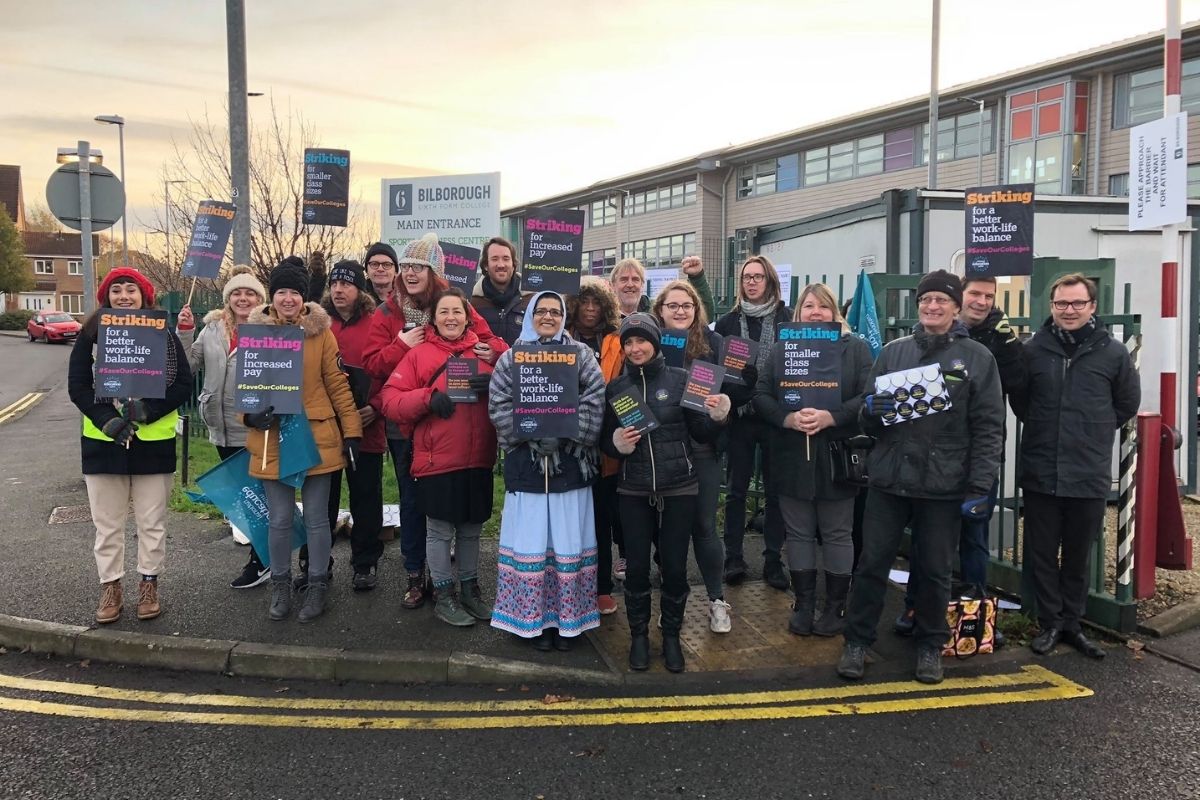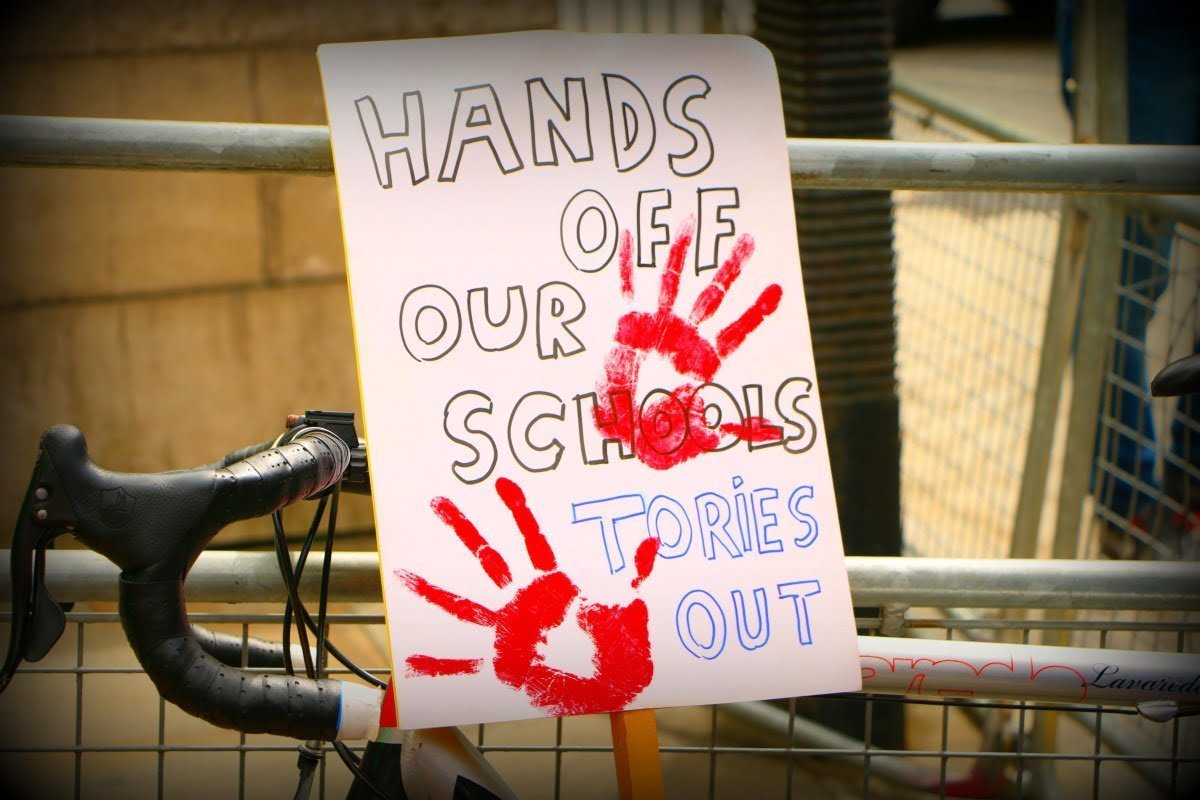A recent survey of NEU members shows that there is an appetite amongst teachers to fight for higher pay. This must be the first step in a struggle to improve conditions inside schools – and towards united action across the public sector.
The conditions for workers across Britain are getting worse and worse. In every sector, hours are lengthening, pay is falling, and precarity is increasing.
For teachers, as with all public sector workers, the situation is becoming desperate. Since 2010, teachers have faced a 17% real terms pay cut – and that’s without factoring in the current cost-of-living crisis set to hammer us.
Survey for action
Over the past month, teachers in the National Education Union (NEU) have been completing a survey to see if members would be in favour of taking strike action to demand an 8% pay rise for all teaching staff.
The results show that over three quarters of those who completed the survey were in favour of action. Clearly, there is a mood to fight amongst members.
With the Tory anti-trade union laws to contend with, however, a turnout of 28% is disappointingly low, given that the minimum turnout required to strike is 50%.
Regardless, this should not be seen as the end of the matter. Many barriers exist that prevent teacher engagement in such surveys. The very conditions that we must fight against – including overwork – are to blame.
The cost of living has risen, inflation is now over 5% and yet teachers’ pay has been frozen.
The NEU is fighting for an 8% pay increase this year and a further 8% next year.
Complete our survey by 4 Feb and tell us what action you want to take.#ValueEducation #ValueEducators pic.twitter.com/OmBfVTdIob
— National Education Union (@NEUnion) January 17, 2022
Teachers under strain

Teachers everywhere are buckling under mountains of work. We are heavily focused on just getting through it all and doing our best for the students.
But tolerance for these poor conditions will not last forever. Teachers, like all other workers, will increasingly come under the strain of the cost-of-living catastrophe.
Studies conducted throughout last year show that 1-in-3 teachers plan on leaving the profession in the next three years. Meanwhile, last year, 1-in-6 – the highest figure on record – quit after just 12 months.
The mass exodus from education is driven by long hours, excessive workloads, low pay, and even lower respect. And as more teachers leave, the worse conditions get.
Organisational barriers
In this context, first appearances are very important. Issuing a survey rather than an indicative ballot for action likely gave many members the wrong impression as to what the union intended.
For many, the idea of a survey is simply to test the waters about pay conditions, rather than providing a serious effort to organise a fightback.
It is enough to contrast the NEU’s survey results with those of the ballot by the Educational Institute Scotland (EIS), where 98% of a 52% turnout voted in favour of rejecting the 2% pay offer, to see the difference that could have been made.
This was not helped by the lack of visibility that the survey received. Despite frequent personal communication from activists and officials within the union, there was very little by way of a public campaign.
Teachers are already atomised and isolated in their profession, especially with COVID measures still in place. To unite teachers, every method must be engaged.
Importantly, a public campaign could have served to raise the sights of teachers – linking this struggle to the struggle of other workers, such as health workers’ fight for a 15% pay rise.
Our online all member meeting takes place at 1230pm today, via the main @EISUnion FB page.
You do not need a FB account to attend.
Please tune in and hear directly from your FELA national negotiators on why you should vote YES to strike action and ASOS.#PAYwedeservebetter pic.twitter.com/2uLBWhc9Ng
— EISFela (@EISFela) February 22, 2022
Unite and fight
 Teachers striking over pay can only be a first step in fighting for better conditions in schools. We need to set our sights beyond the classroom walls, and unite across the public sector. Our fight is one and the same.
Teachers striking over pay can only be a first step in fighting for better conditions in schools. We need to set our sights beyond the classroom walls, and unite across the public sector. Our fight is one and the same.
A teachers’ strike over pay should be the first step in flexing our muscles. This could build momentum towards united public sector action, which is increasingly vital if we are to reverse the damage being done in the name of restoring the bosses’ profits.
Teachers know what is needed to deliver high quality education for all. But we are restricted by inadequate funding and the profit motive. Society is awash with money. Billionaires doubled their wealth this year, and are set to continue doing so.
Our class made this wealth, and it should be ours for the taking. But to use it for the benefit of all we need to start organising here and now.
A proper ballot process is inevitable. And with this, we need a full mobilisation to ensure a thumping ‘Yes’ vote.






